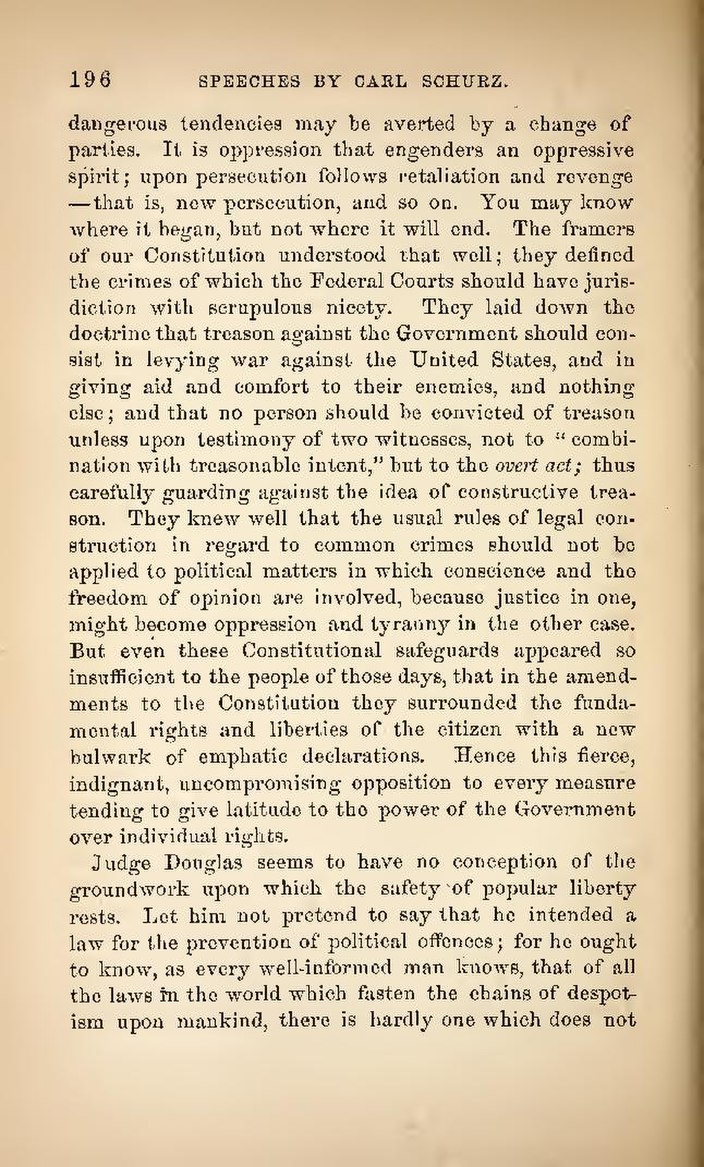dangerous tendencies may be averted by a change of parties. It is oppression that engenders an oppressive spirit; upon persecution follows retaliation and revenge—that is, new persecution, and so on. You may know where it began, but not where it will end. The framers of our Constitution understood that well; they defined the crimes of which the Federal Courts should have jurisdiction with scrupulous nicety. They laid down the doctrine that treason against the Government should consist in levying war against the United States, and in giving aid and comfort to their enemies, and nothing else; and that no person should be convicted of treason unless upon testimony of two witnesses, not to “combination with treasonable intent,” but to the overt act; thus carefully guarding against the idea of constructive treason. They knew well that the usual rules of legal construction in regard to common crimes should not be applied to political matters in which conscience and the freedom of opinion are involved, because justice in one, might become oppression and tyranny in the other case. But even these Constitutional safeguards appeared so insufficient to the people of those days, that in the amendments to the Constitution they surrounded the fundamental rights and liberties of the citizen with a new bulwark of emphatic declarations. Hence this fierce, indignant, uncompromising opposition to every measure tending to give latitude to the power of the Government over individual rights.
Judge Douglas seems to have no conception of the groundwork upon which the safety of popular liberty rests. Let him not pretend to say that he intended a law for the prevention of political offences; for he ought to know, as every well-informed man knows, that of all the laws in the world which fasten the chains of despotism upon mankind, there is hardly one which does not
